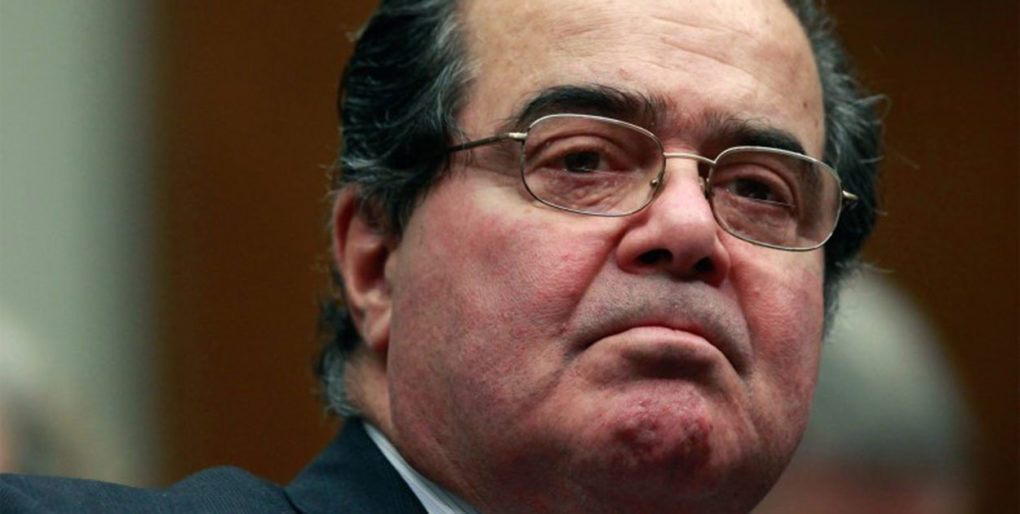Scalia Speaks: Reflections on Law, Faith, and Life Well Lived, a compilation of public speeches given by the late Supreme Court Justice Antonin Scalia, opens a window into the thoughts of one of the country’s most well-known jurists. The speeches are entertaining to read, many touching upon matters of interest outside of the law, and reveal – as the book’s introduction promises – Justice Scalias “warmth, wisdom and humor.”
The book groups Justice Scalias speeches into a number of thematic collections. Speeches grouped under the title “On Law” – the chapter of most interest to lawyers and comprising a good 150 pages of the 400-page book – offer a layman’s primer on Justice Scalias view of the Constitution and the role of a judge. In 1991 speech given at Brown University, for example, he urged listeners to accept that “a bill of rights has value only if the other part of the constitution – the part that really ‘constitutes’ the organs of government – establishes a structure that is likely to preserve, against the ineradicable human lust for power, the liberties that the bill of rights expresses.” In that same speech, Scalia rejected the notion that the Constitution prohibits that which is “intensely bad” or requires what is “intensely good” and denounced as “plainly unhistorical, therefore, to regard the Constitution as simply a shorthand embodiment of all that is perfect – to think that whatever element of perfection does not appear there explicitly must be contained within more vague guarantees, such as the guarantee of due process, or freedom from unreasonable searches, or equal protection.” He warned that such an attitude – commonly promoted by advocates of the idea of a “living Constitution” – “will, in the long run – indeed, in the not so long run – destroy the ability of the Constitution to preserve the guarantees that is does contain.”
The justice’s faith most certainly guided his vocation, but not in the way that most might assume. Granted, when speaking in 1992 before the Judicial Prayer Breakfast Group – which included judges of diverse faiths – he objected to the Kennedyesque idea that “religious affiliation” can be easily isolated from a person’s work. Such an idea, he claimed, “reduc[es] the most profound commitment of a man’s life to a mere membership preference.” But in another speech entitled “Faith and Judging,” Scalia shared his belief that Christ’s charge to “Be ye perfect, as your heavenly Father is perfect” meant striving for perfection “in all things, including that very important thing, the practice of one’s life work.” With a helpful and fairly humorous image, the justice explained: “No matter how good a Catholic a short-order chef may be, for example, there is no such things as a Catholic hamburger. Unless, of course, it is a perfectly made and perfectly cooked hamburger.” Applying this standard to his understanding of the role of a judge, Scalia continued:
“Just as there is no Catholic way to cook a hamburger, so also there is no Catholic way to interpret a text, analyze a historical tradition, or discern the meaning and legitimacy of prior judicial decisions – except, of course, to do those things honestly and perfectly.”
These speeches evidence that Scalia strove for honest and perfectly performed work, rather than importing Catholic doctrine into his decision making. He described, for example, his longstanding opposition to Roe v. Wade as follows: “that position is not a virtuous affirmation of my religious belief, or even a sagacious policy choice, but simply the product of lawyerly analysis of constitutional text and tradition; and that if legal analysis had produced the opposite conclusion I would have come out the other way.” Reading his explanation of how faith guided Justice Scalia gives greater depth to appreciating not simply outcomes he advocated as a jurist, but the conscientious offering he made of this work to God.
Cherishing what is good and beautiful – God, family, friendship and country – Justice Scalia’s speeches offered those in the audience at the time and those who will enjoy reading them today opportunities to celebrate the unique character of Americans and appreciate the laws creating and governing our country. Scalia Speaks reveals Justice Scalia, using his own words, to have been a man who served his country with conviction, sincerity, incredible intelligence and culture, and a really great sense of humor.
About the Author: Andrea Picciotti-Bayer
Andrea Picciotti-Bayer is Legal Advisor for The Catholic Association Foundation. Her legal career has been dedicated to civil rights advocacy. This article first appeared on www.catholicnewsagency.com and is reprinted with the kind permission of the editor.

